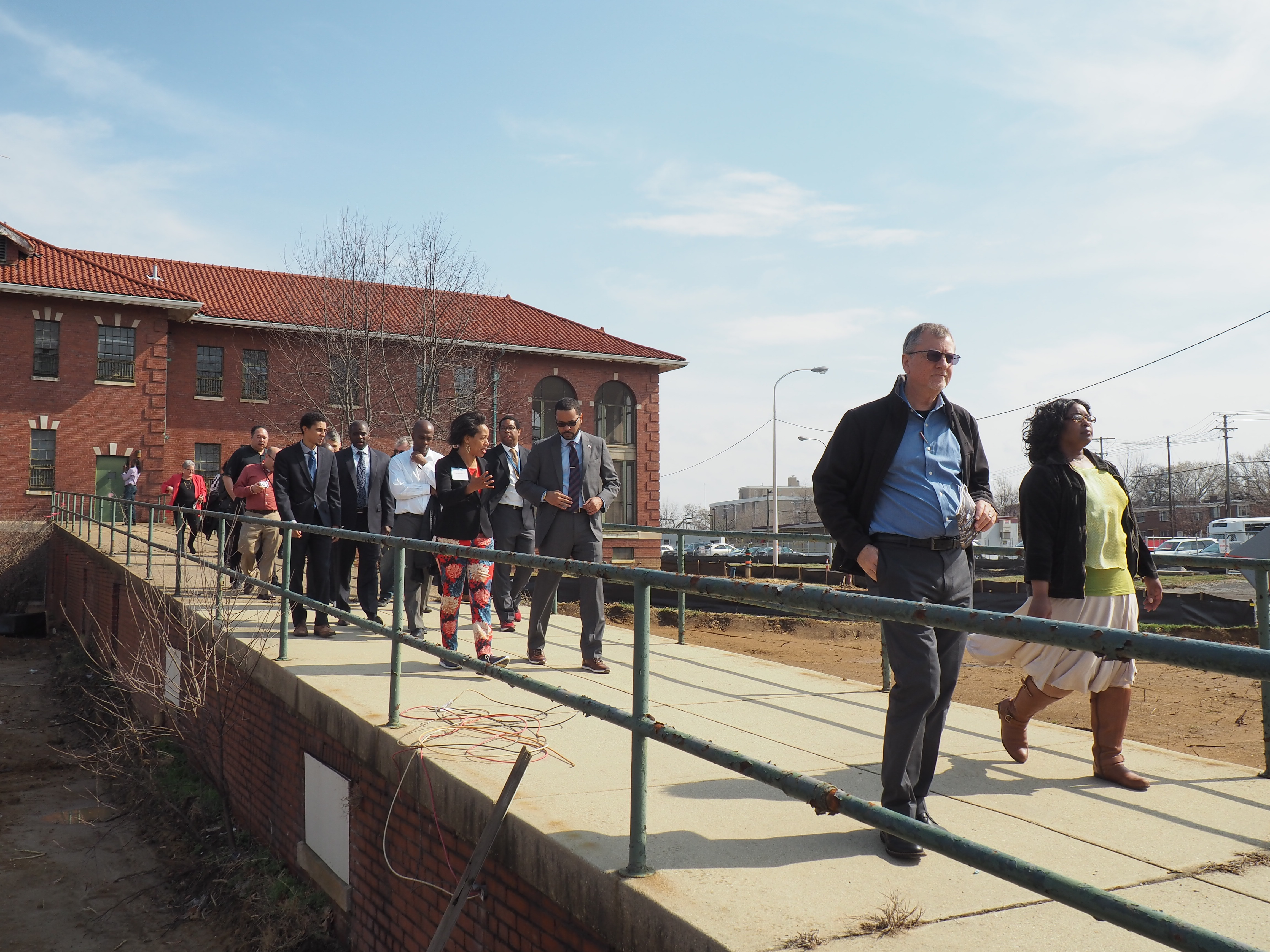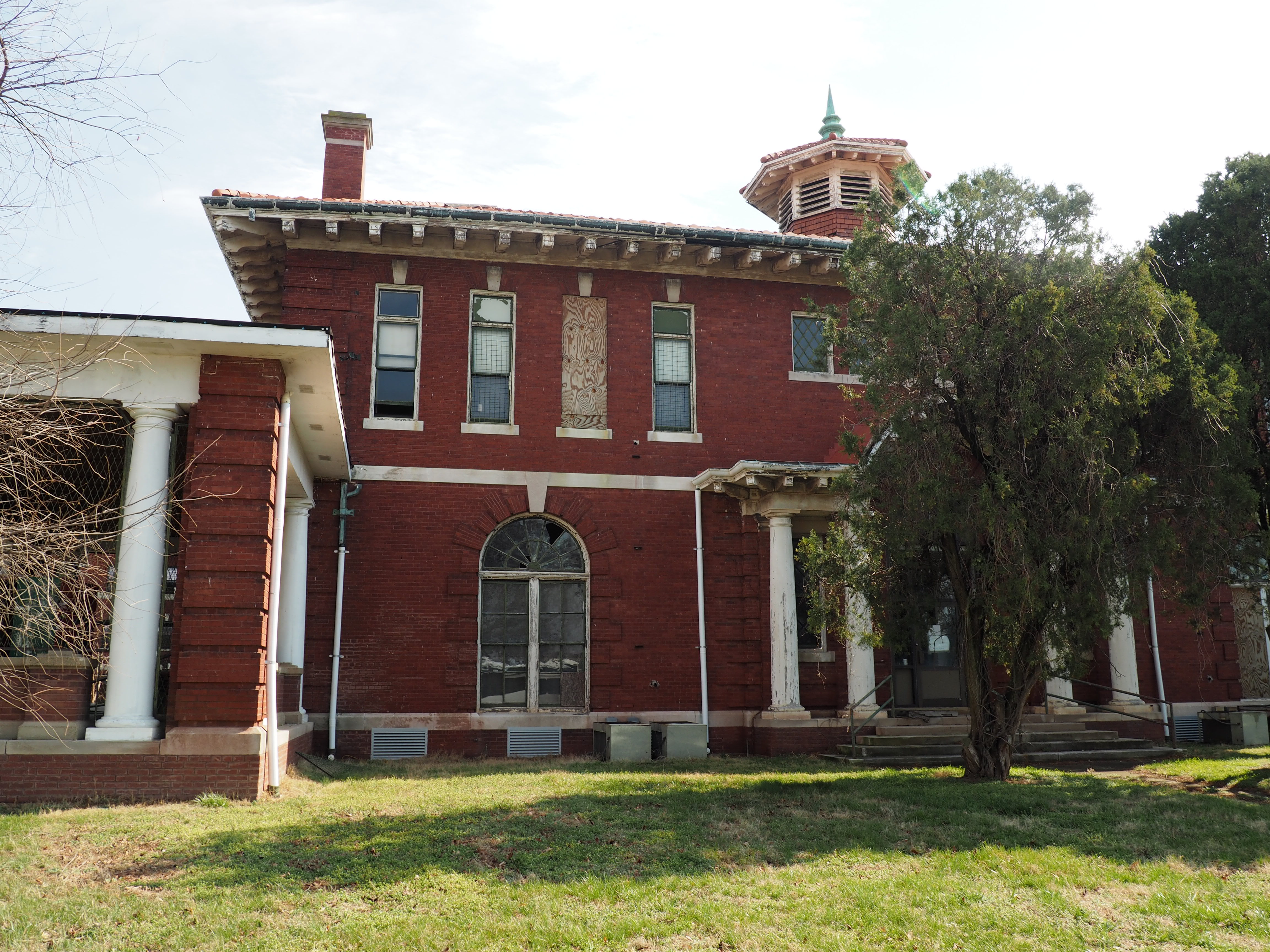In an East-of-River Revitalization, D.C. Takes Lessons From Across the Country

Image Courtest of Courtney Bernard, National League of Cities
In developing a key parcel in a historically underserved community, Mayor Muriel Bowser is working with experts from the Rose Center to ensure development supports current residents.
This is the second in a series of stories looking at this year’s Daniel Rose Center for Public Leadership 2017 Fellowship cities—Anchorage, Grand Rapids, San José and Washington, D.C. On May 2, Route Fifty, as part of a five-city Roadshow series of events, will be hosting a special Rose Center Mayors’ Forum from the Urban Land Institute’s Spring Meeting in Seattle. | REGISTER
WASHINGTON — In what seems to be a pattern for many major cities across the United States, it’s hard to scan the horizon in the District of Columbia and not notice the cranes dotting skyline.
The nation’s capital grew by 100,000 residents over the last 15 years to 675,000. It’s quite the turnaround story for a city that lost a quarter of its population during waves of social unrest, rioting, crime and drug epidemics from the 1960s through the 1980s.
Real estate developers are starting to look across what has been a geographic boundary to that accelerated development—the Anacostia River. Federal, local and private-sector resources are being to be funneled into the St. Elizabeths Campus in the Congress Heights neighborhood with an eye at revitalizing the area.
To ensure that any redevelopment will lead to equitable outcomes for the surrounding residents D.C. Mayor Muriel Bowser, her staff, and neighborhood leaders are working with the Daniel Rose Center for Public Leadership. In their successful application to become a Rose Center fellowship program city for 2017, they stated a goal of ensuring the revitalization supported the existing neighborhood “rather than result in displacement or its continued economic and social isolation.”

Bowser and her team have reason to be focused on whether existing residents will benefit from the development. Areas of Washington that have been considered working class for decades have been made anew by developers and newcomers. Home to some of the largest redevelopment projects in the country, neighborhoods of rowhouses and corner stores are now replete with new condos and high priced small-plate restaurants.
East-of-the-River neighborhoods have not been nearly as impacted by D.C.'s population and real estate boom. As often recorded locally, median incomes are half of those west of the Anacostia River, and poverty is triple that of the rest of the city. The area is also significantly underserved by commercial services from grocery stores to restaurants and retail.
“Mayor Bowser campaigned on the idea that the District is on the right track but more should be done to address the needs of those left behind by the city’s 15-year economic boom,” explained Gideon Berger, Fellowship Program Director for the Rose Center, in an interview with Route Fifty. According to Berger, Bowser’s commitment to these issues thus far—including committing a $100 million fund for affordable housing, demonstrated “she was both serious about these issues and had the capacity to implement her agenda.”
The decisions about how to reinvigorate the community while revitalizing the St. Elizabeths campus may be particularly tricky. Since 1855, St. Elizabeths Hospital campus has been a significant piece of the District of Columbia’s Congressional Heights community, albeit one walled off from the surrounding neighborhoods. At its height in the 1950s, the enclosed 356-acre complex was home to 8,000 mental health patients and 4,000 staff. On a plateau in the hills between the Anacostia and Congress Heights neighborhoods, the property boasts scenic views of the region. It was designated as a national historic landmark for the architectural blend of the idyllic landscaping and views curated and crafted to help the patients’ recovery—ideas that were very progressive in the campus’ heyday.

The modern St. Elizabeths Hospital has settled in at a much smaller facility with a comparatively small patient population, and has otherwise sat mostly abandoned until recently. That all is beginning to change, though.
The U.S. Department of Homeland Security is creating a unified headquarters centered on the western part of the campus, taking over many of the historic buildings. On the eastern 183 acres, non-federal development is beginning to take shape. The Washington Wizards, the city’s professional men’s basketball team, is leading the charge on a $55 million arena that would open in 2018 for Wizards’ practices, home games of the WNBA Washington Mystics and other entertainment. Hundreds of new residential units are being planned, along with over 200,000 square feet of retail and commercial office space. In addition, the District has established two public facilities on the site: the beautifully designed Gateway Pavillion event space and the RISE technology and community center.
“Mayor Bowser's administration is taking a thoughtful and proactive approach to a really complicated development project at St. Elizabeths,” said Rose Center Director Jess Zimbabwe. “We hope to bring some best practices from other places and new approaches from leading experts to bear here.”
Over four days in early March, the Rose Center brought in a team experts hailing from Anchorage, Atlanta, Denver, Grand Rapids, Houston, New York, and Philadelphia to join District officials and neighborhood leaders in taking on the puzzle of how to best include existing residents in what could be a remaking of their neighborhood. Over the first three 12-18 hour working days, the teams met with over 40 individuals and looked at ways to best support the existing community among the impending changes.

Discussions included crafting an intensive workforce development strategy to train and prepare residents for opportunities in advance of construction, as well as a business development strategy to find opportunities to seed local entrepreneurship. The teams from the District and the Rose Center also discussed physical and social integration of the development into the neighborhood—both through infrastructure and programming. Other opportunities for financial empowerment of existing residents was also discussed, such as leveraging increased property evaluations.
“There is a lot of focus by the District about how to protect the most vulnerable people in Congress Heights from the threat of displacement by a red hot real estate market,” explained Berger. “The greatest risk is that whatever development happens, without enough intentionally planning and intervention to capture those benefits for the community it will not result in the kind of transformative economic benefits the residents of Congress Heights—and the District government—have been hoping for all these years.”
Mitch Herckis is the Senior Director of Programs at Government Executive's Route Fifty and is based in Washington, D.C.
NEXT STORY: Chief Architect of State-level Anti-Abortion Laws Nominated to Top HHS Post






